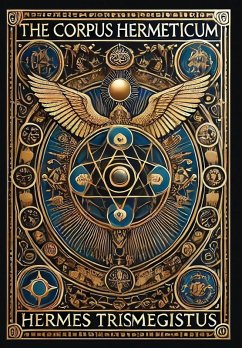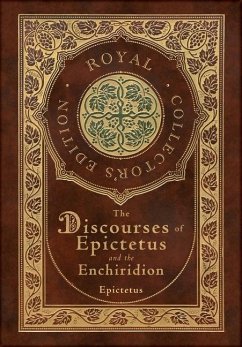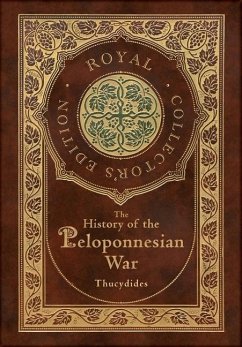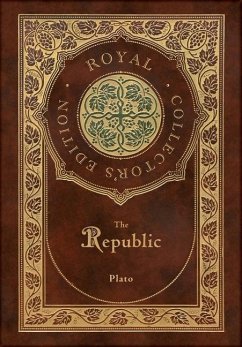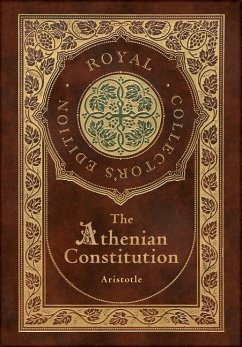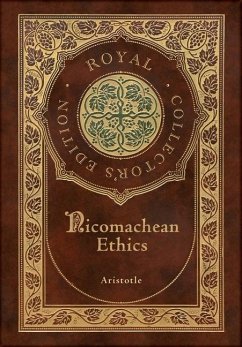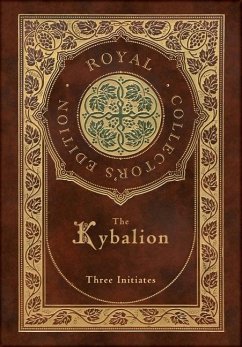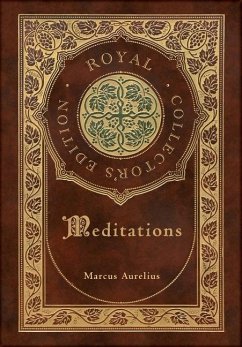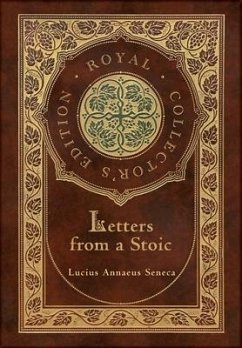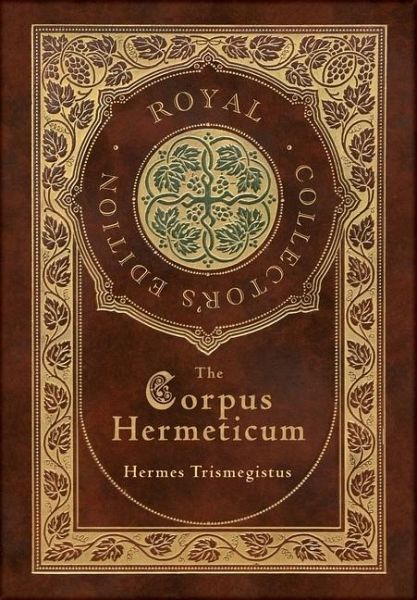
Hermes Trismegistus
Gebundenes Buch
The Corpus Hermeticum (Royal Collector's Edition) (Case Laminate Hardcover with Jacket)
Versandkostenfrei!
Versandfertig in über 4 Wochen
Weitere Ausgaben:

PAYBACK Punkte
19 °P sammeln!




The Corpus Hermeticum is a collection of 2nd century Egyptian-Greek texts. The texts form the basis of Hermeticism, a religious, philosophical, and esoteric tradition that covers the divine, the cosmos, the mind, alchemy, astrology, and nature.
Hermes Trismegistus is the purported author of The Corpus Hermeticum, a series of sacred texts that are the basis of Hermeticism. Hermes Trismegistus may be associated with the Greek god Hermes and the Egyptian god Thoth. Greeks in the Ptolemaic Kingdom of Egypt recognized the equivalence of Hermes and Thoth through the interpretatio graeca. Consequently, the two gods were worshiped as one, in what had been the Temple of Thoth in Khemenu, which was known in the Hellenistic period as Hermopolis. Hermes, the Greek god of interpretive communication, was combined with Thoth, the Egyptian god of wisdom. The Egyptian priest and polymath Imhotep had been deified long after his death and therefore assimilated to Thoth in the classical and Hellenistic periods. The renowned scribe Amenhotep and a wise man named Teôs were coequal deities of wisdom, science, and medicine; and, thus, they were placed alongside Imhotep in shrines dedicated to Thoth-Hermes during the Ptolemaic Kingdom. Some authorities regard Hermes Trismegistus as a contemporary of Abraham, and claim that Abraham acquired a portion of his mystical knowledge from Hermes himself. Christian writers considered Hermes to be a wise pagan prophet who foresaw the coming of Christianity. They believed in the existence of a single theology that threads through all religions. It was given by God to man in antiquity and passed through a series of prophets, which included Zoroaster and Plato. In order to demonstrate the verity of this thesis, Christians appropriated the Hermetic teachings for their own purposes. By this account, Hermes Trismegistus was either a contemporary of Moses, or the third in a line of men named Hermes.
Produktdetails
- Verlag: Royal Classics
- Seitenzahl: 90
- Erscheinungstermin: 29. November 2020
- Englisch
- Abmessung: 231mm x 158mm x 16mm
- Gewicht: 308g
- ISBN-13: 9781774378458
- ISBN-10: 1774378450
- Artikelnr.: 64373191
Herstellerkennzeichnung
Libri GmbH
Europaallee 1
36244 Bad Hersfeld
gpsr@libri.de
Für dieses Produkt wurde noch keine Bewertung abgegeben. Wir würden uns sehr freuen, wenn du die erste Bewertung schreibst!
Eine Bewertung schreiben
Eine Bewertung schreiben
Andere Kunden interessierten sich für


